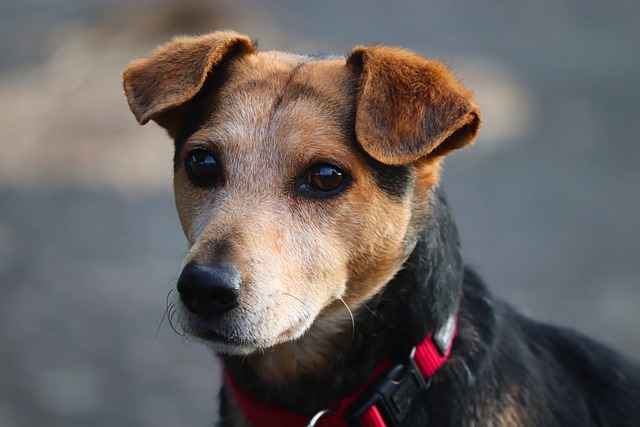
What is glaucoma in a dog?
You might notice your dog squinting more at mealtime or avoiding bright sunlight—these small changes could be early signs of a serious eye condition.
The dog at home gradually enters old age from a lively and active puppy, and every change in it touches our hearts. It used to be full of vitality, but now its pace has become slow and its eyes have become a bit tired. While caring about its diet and sleep, we also wonder: Do elderly dogs still need to be vaccinated? The answer to this question is related to the health and happiness of dogs.
As dogs age, their physical functions gradually decline and their immunity is also greatly weakened. Older dogs are like elderly people entering old age, their body's defense system is no longer as strong as when they were young, and they are often more prone to "defeat" in the face of various bacterial invasions. In this case, vaccines are like a strong defense line built for them, helping them resist the threat of common infectious diseases.
The core vaccine is an indispensable protective barrier for elderly dogs. For example, the rabies vaccine is a mandatory vaccine for all dogs, regardless of age. Rabies is a highly lethal disease, and once it occurs, there is almost no cure. Vaccinating elderly dogs against rabies is not only responsible for the dogs themselves, but also for the safety of people and animals around them. For example, vaccines for canine distemper, parvovirus, and infectious hepatitis are equally deadly for elderly dogs. Canine distemper virus can attack the respiratory, digestive, and nervous systems of dogs, and elderly dogs with the disease may experience symptoms such as coughing, diarrhea, and seizures; Parvovirus mainly invades the intestines of dogs, causing severe vomiting, diarrhea, and dehydration. The fragile bodies of elderly dogs find it difficult to withstand such torment; Infectious hepatitis can damage the liver and other organs of dogs, seriously affecting their health. Getting vaccinated with these core vaccines can greatly reduce the risk of elderly dogs contracting these serious diseases.

In addition to core vaccines, non core vaccines can also be considered for dogs based on their living environment and health status. If dogs frequently engage in outdoor activities and have more opportunities to interact with other animals, then the Bordetella vaccine (to prevent dog cough) is necessary. Canine cough is a highly contagious respiratory disease that can easily spread in places where dogs gather, such as pet parks, pet shops, etc. The respiratory tract of elderly dogs is relatively fragile, and coughing from infected dog beds may lead to more serious respiratory problems. In addition, the Lyme disease vaccine is also a good choice for elderly dogs living in areas with high levels of ticks. Lyme disease is a tick borne disease that can affect the joints, heart, and nervous system of dogs, making recovery more difficult in older dogs.
When vaccinating elderly dogs, there are also some areas that need special attention. Due to the sensitivity of elderly dogs, it is important to take them to a pet hospital for a comprehensive physical examination before vaccination. Veterinarians can assess a dog's physical condition through examination and determine whether it is suitable for vaccination. For example, if a dog has serious heart disease, diabetes or other chronic diseases, it may need to be vaccinated after the condition is stable, or adjust the type and dose of vaccine. After vaccination, closely observe the dog's reaction. Some elderly dogs may experience mild discomfort, such as drowsiness, loss of appetite, redness and swelling at the injection site, etc. These symptoms usually disappear on their own within one or two days. But if a dog experiences severe allergic reactions such as shortness of breath, facial swelling, vomiting, etc., it should be taken to the hospital immediately for treatment.
Although elderly dogs are no longer as energetic as they were when they were young, they are still the most important companions in our lives. Every time we accompany them to get vaccinated and take good care of them after vaccination, it is a manifestation of our deep love for them. Vaccines are not only tools to protect their health, but also witnesses to the deep emotional connection between us and them. Let us use this love to safeguard the health of elderly dogs, allowing them to spend a happy and peaceful old age with our company.

You might notice your dog squinting more at mealtime or avoiding bright sunlight—these small changes could be early signs of a serious eye condition.

Let’s set the scene: It’s a sweltering Phoenix afternoon—105°F outside—and you rushed your 2-year-old Lab mix, Cooper, on a quick walk to “get it over with.”

Let’s get real: You’re in your Miami apartment, watching your 3-year-old Corgi, Loki, struggle to climb the stairs to your second-floor unit.

Many dog owners brush off occasional scratching as just “dog behavior,” but persistent itching often signals something more—like a food allergy.

You might first notice your dog scratching more than usual—chewing at their paws until the fur looks thin, or rubbing their face against the couch nonstop.

Let’s be real: You’re standing in your Chicago apartment, watching your 3-year-old Beagle, Max, huff and puff just to climb onto the couch.